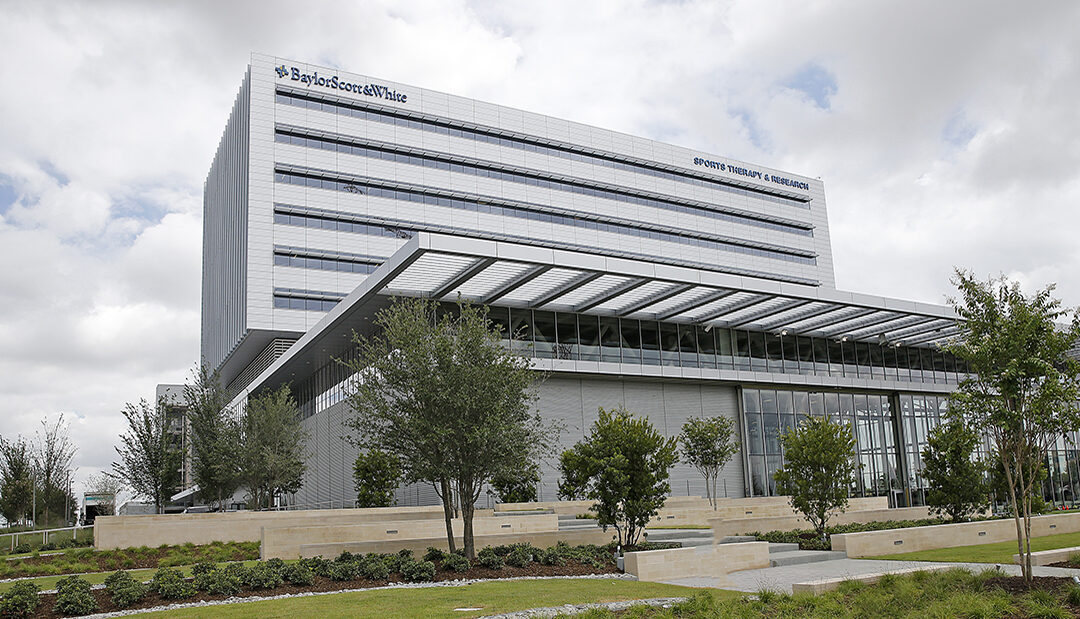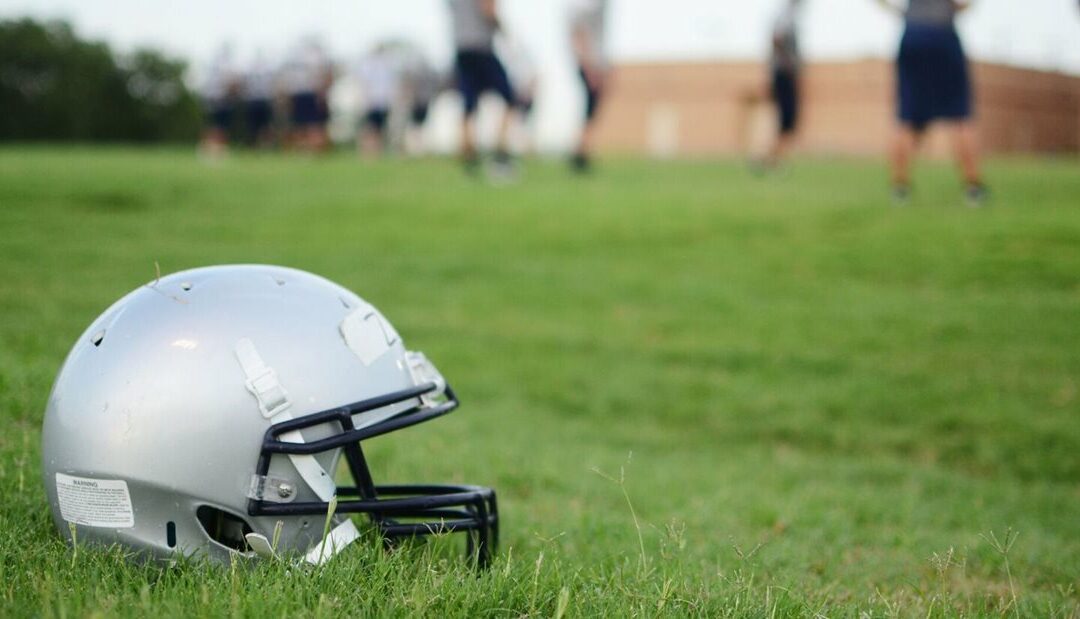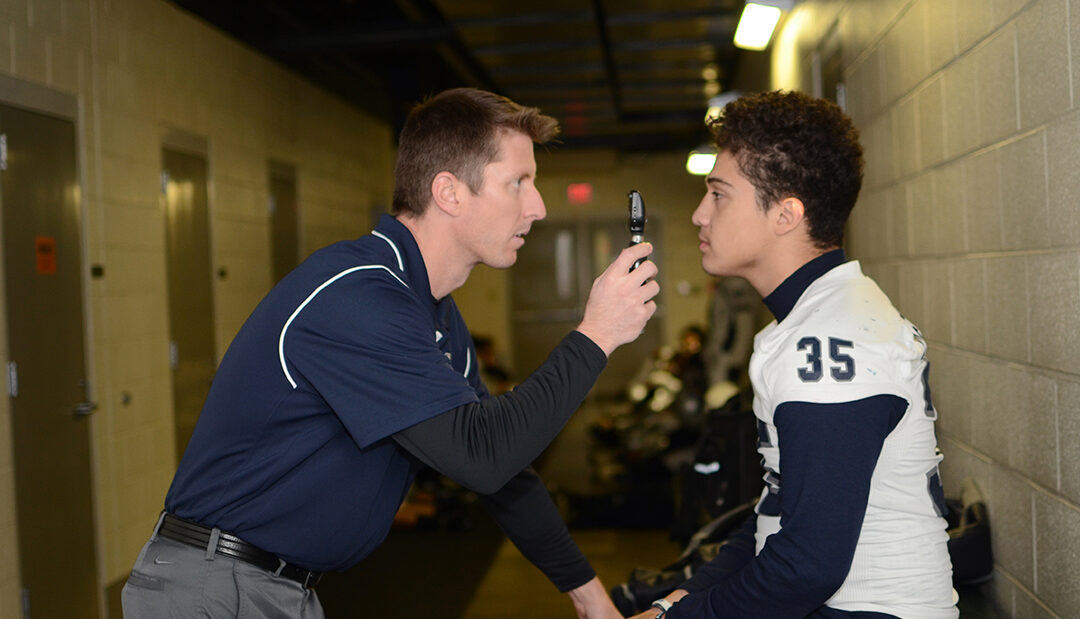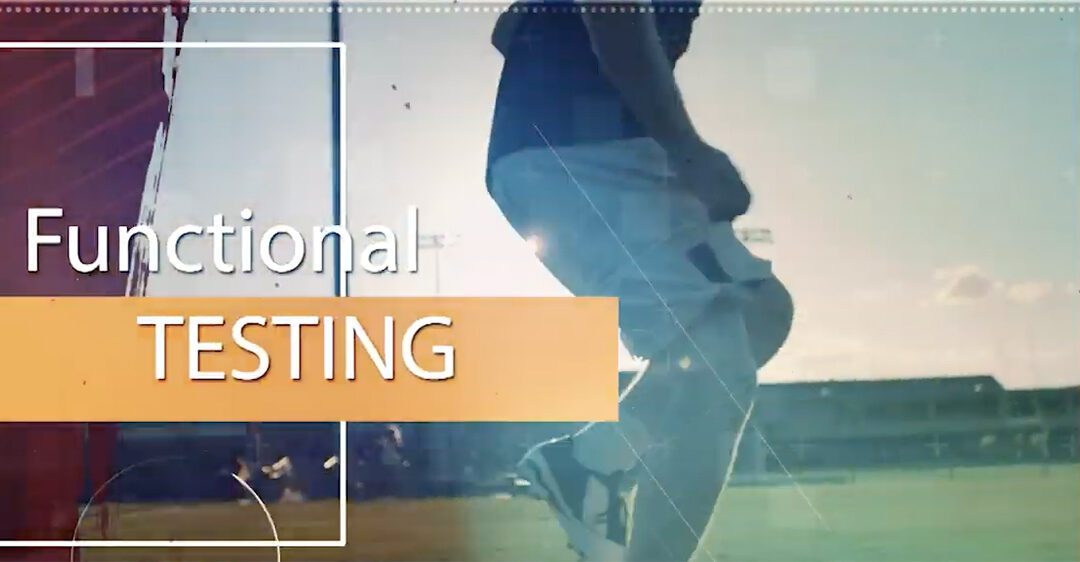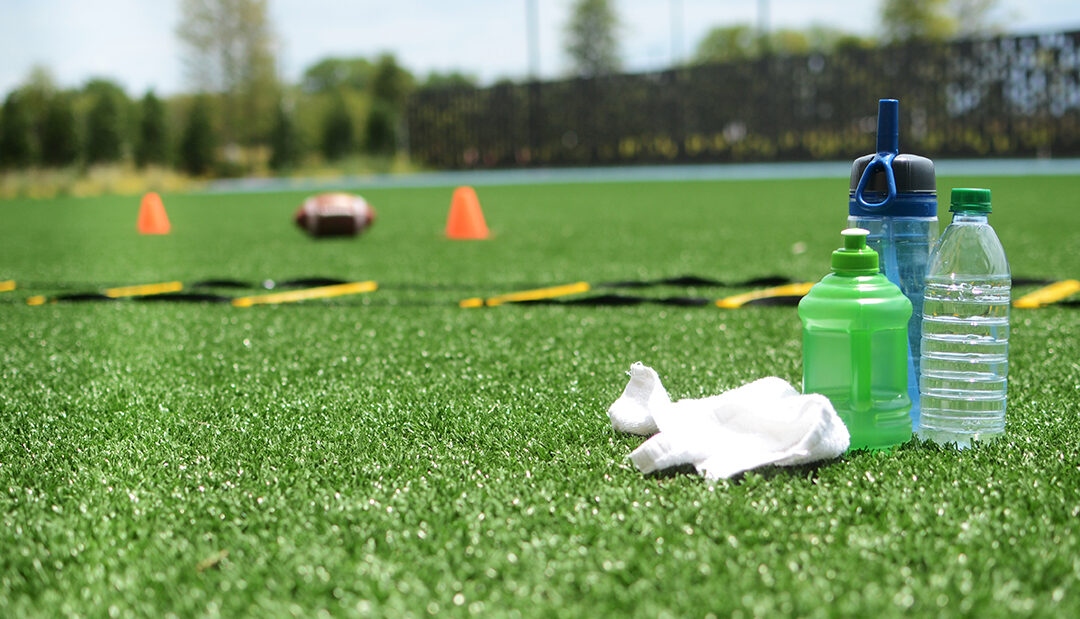
When a Young Athlete Gets Too Hot
As temperatures rise and athletes return to outdoor training and tournaments, recognizing and responding to the signs and symptoms of heat illness is critically important. Though body temperature may not be elevated, heat illness may still be present.
Signs and Symptoms of Heat Illness
- Weakness
- Vomiting
- Excessive thirst
- Headache
- Fatigue
- Sweating
- Nausea
- Light-headedness
Keeping cool when exercising in the heat
- Take rest and water breaks, every 15-20 minutes
- Avoid the hottest hours from 10 a.m. – 5 p.m.
- Drink a sports drink with electrolytes and 6-8 percent carbohydrates when training lasts over 60 minutes
- Avoid training in direct sunlight
- Take breaks in the shade
- Encourage removal of equipment during breaks, e.g., helmet
- Wear loose-fitting, light-colored and moisture-wicking clothing
Be prepared
- Prepare ice and water before training sessions
- Limit consumption of caffeinated and sugary beverages
- Gradually increase physical activity in the heat
- Continue conditioning in the off-season
- Don’t train in the heat while you are sick or have a fever
Ways to respond quickly to signs and symptoms of heat illness
- Full body immersion in an ice bath
- Iced-down towels applied all over the body
Download this infographic with your team and coaches.

.jpg?width=449&height=658)
